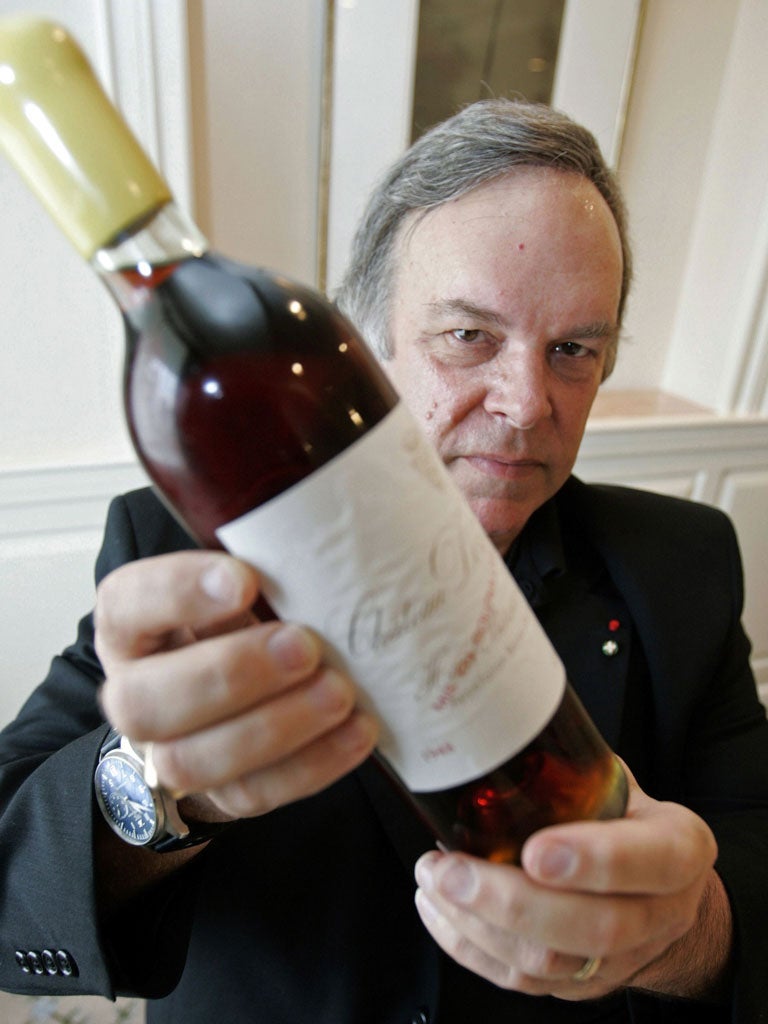Wine investors raise a glass to the 2009 Bordeaux
A single critic has helped lift a seemingly corked market, but will it be enough to sustain returns, asks Julian Knight

It's strange to think of the US critic Robert Parker coming to the rescue of the wine industry but that's effectively what he did last week. The critic, whose judgement and scoring have been known to make or break the world's great wines, gave a perfect 100 score to 19 wines from Bordeaux's 2009 vintage. This marks it as one of the greatest vintages of all time, and not before time for a wine market in dire straits.
"Prices of many vintage wines had fallen by up to 30 per cent since the heights of early 2011. A bubble in the market was created – driven in part by new demand from Asia – by a massive rise of 75 per cent in just two years from 2009," Chris Smith, an analyst at the Wine Investment Fund said.
A combination of factors hit the market in 2011, such as the deepening eurozone crisis, and a slowdown in China which has become the hub of wine speculation. "The truth is that in late 2011 no one wanted to be the person holding wine at the top of the market, so we saw price falls, particularly in Lafitte which is still the choice of wine for the Chinese market," says Gary Boom, the co-founder of London wine merchants Bordeaux Index.
But, Parker's 2009 scores has turned things around. "There were dramatic rises in the prices of some wines given the 100 score. Literally within 24 hours, some 2009 wines rose 65 per cent," says Peter Lunzer, the chief executive of Lunzer Wine Investments.
Wine investment group Vin-X estimated that Parker's scores added a staggering $100m to the value of the 2009 vintage, which may trickle down to other years. "People may have missed the boat with 2009, but I'm optimistic about the rest of 2012. A really outstanding year and a price surge tends to filter through to other vintages which look good value compared with the now highly priced 2009," Mr Boom says. "The 1996, 2000, 2003 and 2005 vintages have fallen in price and now look good value."
But Mr Lunzer reckons the surge in 2009 prices is a little false: "We are seeing big swings in price off the back of a very small stock actually available for sale. I prefer slightly older wines for investment as they are being drunk now, therefore supply is going down and prices should follow. Take the 1996 vintage it is currently the same cost as the 2009 vintage, but is drinkable now while the 2009 is not."
Mr Smith also recommends wine of more than five years, rather than more modern vintages, which are often bought en primeur – still in the barrel.
There are different ways to invest in wine: directly through a broker or through a wine investment fund. Brokers, who will store bottles in a bonded warehouse for a fee, will build a portfolio for individual investors, whereas for a minimum investment, usually £10,000, a fund pools investors' cash to buy a stock of wine with the intention of making a profit at resale. To build a substantial, diversified portfolio, £50,000 is considered necessary, but Vin-X reports a rise in small investors, with a few thousand pounds to invest.
Whatever the method, wine investment is not for the faint-hearted, or for those who can not afford to lose money. "You have to do your homework," says Mr Lunzer. "Websites such as winesearcher.com and investdrinks.org are great resources to guard against scammers and to check your broker's picks."
Join our commenting forum
Join thought-provoking conversations, follow other Independent readers and see their replies
Comments